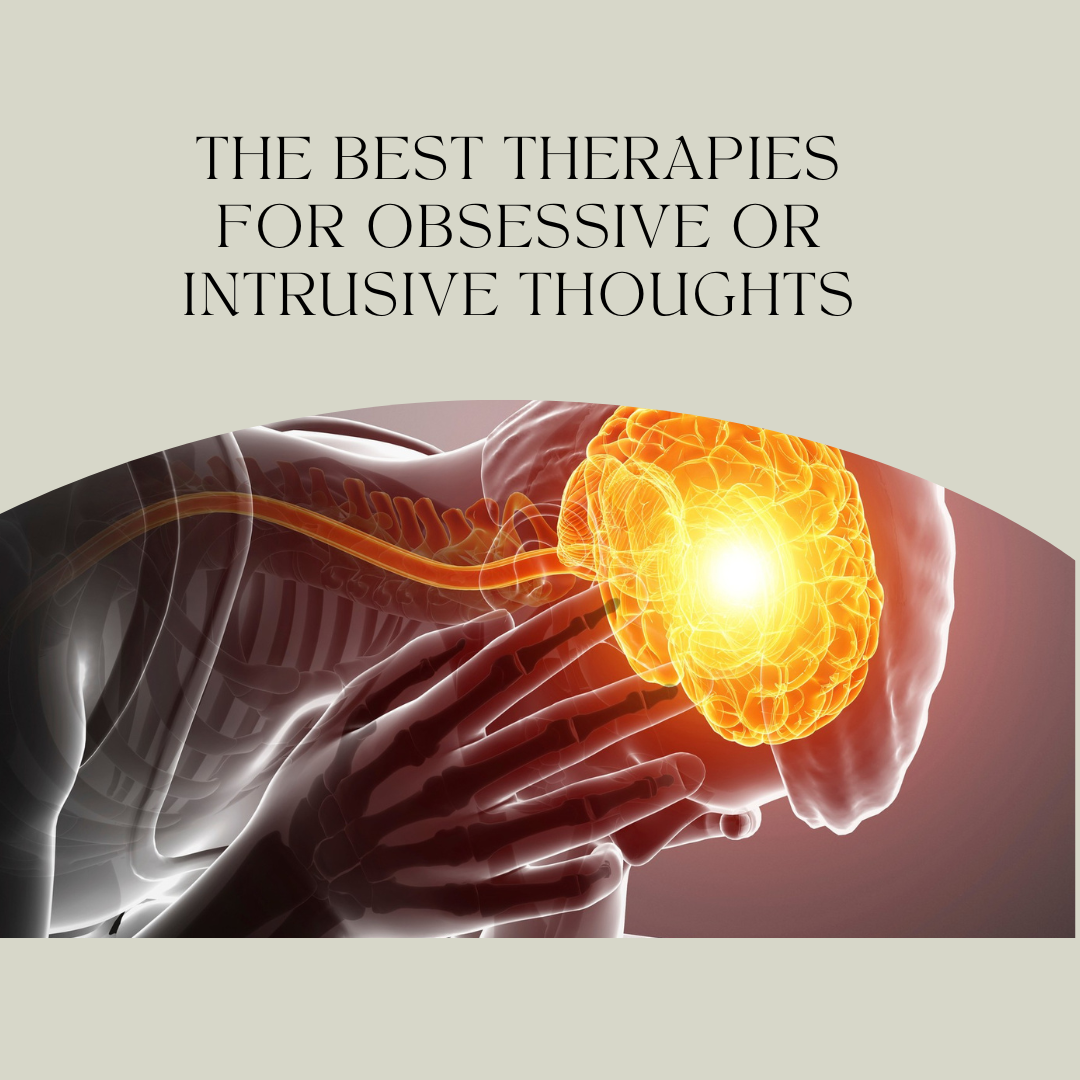Welcome to the heartbeat of Integrative Counsel, our blog where tranquility meets transformation. This is your sanctuary for insights and wisdom on nurturing a harmonious connection between mind, body, and spirit.
The Best Therapies For Obsessive Or Intrusive Thoughts

Have you ever felt like a passenger on your own train of thought? When our mindfulness is a distant memory, intrusive thoughts have a knack for wrapping their little claws around our poor, undeserving subconscious. These intrusive thoughts are immediately and obviously time-consuming, upsetting, and ultimately unproductive, but even if we’re able to recognize the toil of struggling though obsessive thought patterns, quitting is no easy matter. When it comes time to fight back, you may want to seek out an expert.
“Habits, if not resisted, soon become necessity.” – Saint Augustine
How Do You Treat Obsessive or Intrusive Thoughts?
Many of us go through the majority of our lives passively accepting our intrusive thoughts, perhaps not even recognizing them as intrusive for years or even decades. Making a different choice requires a major shift in strategy, and most people don’t manage that shift on their own. When it comes time to make a different choice, your best option is seeking out the right therapist.
What Is The Best Type of Therapy For Obsessive Thoughts?
But how do you know what kind of therapist is right for you? There are so many specialties out there, and it can feel like you need a psychology degree to even understand what all the acronyms mean. But we’ve got you covered, here are some of the most effective therapy types for patients struggling with intrusive or obsessive thoughts:
- Movement Therapy. The mind-body connection is real, and you can use it to fight back against your intrusive thoughts. By consciously getting in touch with your body, it can open the door to getting in touch with your conscious mind.
- EMDR. Eye Movement Desensitization and Reprocessing (or EMDR) is a transformative mental health treatment technique that uses the movement of your eyes to process difficult or traumatic memories. This can be deeply helpful for patients with OCD because it can rewrite the deeply ingrained thought patterns informed by our traumas.
- Art Therapy. Art therapy has the capacity to put you in a flow state, where you are able to calmly observe your intrusive thoughts and make sense of them. In this flow state, the right side of your brain, which is emotional and intuitive, is able to communicate with the more logical left-side of the brain, allowing you to calmly view your intrusive thoughts and work through them.
- Cognitive Behavioral Therapy. This is the big one. Most people who seek out help for their intrusive thoughts find relief from CBT, and so can you.
What Is Cognitive Behavioral Therapy?
 Cognitive Behavioral Therapy (CBT) is a form of therapy where the patient explores their cognition (or thoughts) to improve their behavior (or actions). CBT is one of the most common ways to treat patients with OCD because it teaches the skills required to cope with the symptoms. In pursuing CBT, you may experience therapies such as…
Cognitive Behavioral Therapy (CBT) is a form of therapy where the patient explores their cognition (or thoughts) to improve their behavior (or actions). CBT is one of the most common ways to treat patients with OCD because it teaches the skills required to cope with the symptoms. In pursuing CBT, you may experience therapies such as…
- Talk Therapy. This is the archetypal therapy session like you’ve seen in movies and TV. Your therapist will ask you questions, invite you to share your feelings, and explore the causes and ramifications of those feelings. Talk therapy engages your conscious mind, and can help people struggling with intrusive thoughts by having them examine their subconscious intrusive thoughts in the here and now. The skill you’re learning here is how to recognize yourself not as the thoughts you are having, but as the watcher of those thoughts.
- Exposure Therapy. I’ll break bread with you, this is the least fun you’ll ever have in therapy. In fact, this therapy is so unfun that it teaches you how to live your life fearless of the things that once possessed your mind. Exposure Therapy is all about exposing you to the things and situations that trigger your intrusive thoughts so that you can get valuable practice in monitoring your thoughts, managing your anxiety, and self-soothing when necessary.
- Response Prevention Therapy. This one goes hand-in-hand with exposure therapy, and can be life-changing for patients with OCD. In Response Prevention Therapy, you learn how to recognize when your intrusive thoughts are guiding your behavior and modify that behavior into something socially acceptable, productive, or even healthy.
If you feel stuck on your healing journey, working with a therapist can help. Based on your needs, our intake specialist will help you get matched up with your perfect therapist. Click here to schedule a consultation.
 Sunny Ebsary is an educator, multi-modal artist, and writer specializing in the intersection of myth and mental health. Sunny’s writing walks the line between poetic and logical, giving readers a chance to interface with the mind and imagination. Sunny’s been putting pen to paper since he was a child, writing everything from albums, novels, and plays, to essays, interactive games, and of course, many articles! While studying both psychology and writing, he realized his real passion in life was helping others unlock their creative spark. Whether he’s leading a D&D game, directing a production, or diving deep into the brain, you can be sure Sunny will be ushering you toward finding meaning in your life.
Sunny Ebsary is an educator, multi-modal artist, and writer specializing in the intersection of myth and mental health. Sunny’s writing walks the line between poetic and logical, giving readers a chance to interface with the mind and imagination. Sunny’s been putting pen to paper since he was a child, writing everything from albums, novels, and plays, to essays, interactive games, and of course, many articles! While studying both psychology and writing, he realized his real passion in life was helping others unlock their creative spark. Whether he’s leading a D&D game, directing a production, or diving deep into the brain, you can be sure Sunny will be ushering you toward finding meaning in your life.
October 26, 2023
Click here to book a consultation call and start navigating your personal path to mental harmony with a therapist who gets you. Your journey, your pace, your story—let's unfold it together.
Let's keep the conversation going.
Feeling the spark to light up your wellness journey?
resources
CONTACT
RATES
join us
shop
SERVICES
OUR APPROACH
visiting professionals
OUR TEAM
HOME
727.342.0054
hello@integrativecounsel.com
Integrative Counsel is committed to providing culturally competent services. We respect the uniqueness of every person including, but not limited to race, ethnicity, gender identity, sexual orientation, class and religious affiliation.
